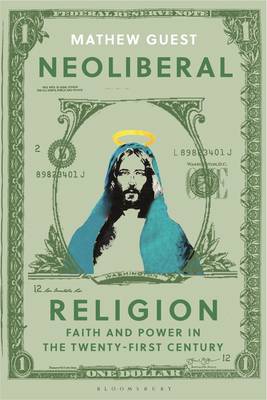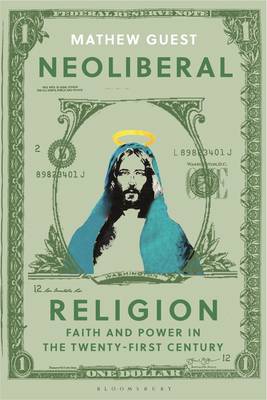
- Afhalen na 1 uur in een winkel met voorraad
- Gratis thuislevering in België vanaf € 30
- Ruim aanbod met 7 miljoen producten
- Afhalen na 1 uur in een winkel met voorraad
- Gratis thuislevering in België vanaf € 30
- Ruim aanbod met 7 miljoen producten
Zoeken
€ 169,95
+ 339 punten
Uitvoering
Omschrijving
This book explores neoliberalism as an account of contemporary society and considers what this means for our understanding of religion.
Neoliberalism is a perspective grounded in free market economics and distinguished by a celebration of competition and consumer choice. It has had a profound influence in societies across the world, and has extended its reach into all areas of human experience. And yet neoliberalism is not just about enterprise and opportunity. It also comes with authoritarian leadership, gross inequality and the manipulation of information. How should we make sense of these changes, and what do they mean for the status of religion in the 21st century? Has religion been transformed into a market commodity or consumer product? Does the embrace of business methods make religious movements more culturally relevant, or can they be used to reinforce inequalities of gender or ethnicity? How might neoliberal contexts demand we think differently about matters of religious identity and power? This book provides an accessible discussion about religion in the 21st century. Mathew Guest asks what distinguishes neoliberal religion and explores the sociological and ethical questions that arise from considering its wider significance.Specificaties
Betrokkenen
- Auteur(s):
- Uitgeverij:
Inhoud
- Aantal bladzijden:
- 216
- Taal:
- Engels
Eigenschappen
- Productcode (EAN):
- 9781350116399
- Verschijningsdatum:
- 11/08/2022
- Uitvoering:
- Hardcover
- Formaat:
- Genaaid
- Afmetingen:
- 156 mm x 234 mm
- Gewicht:
- 476 g

Alleen bij Standaard Boekhandel
+ 339 punten op je klantenkaart van Standaard Boekhandel
Beoordelingen
We publiceren alleen reviews die voldoen aan de voorwaarden voor reviews. Bekijk onze voorwaarden voor reviews.








